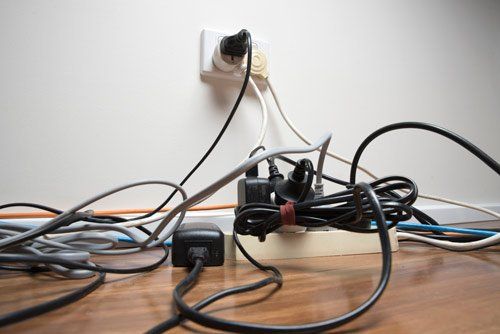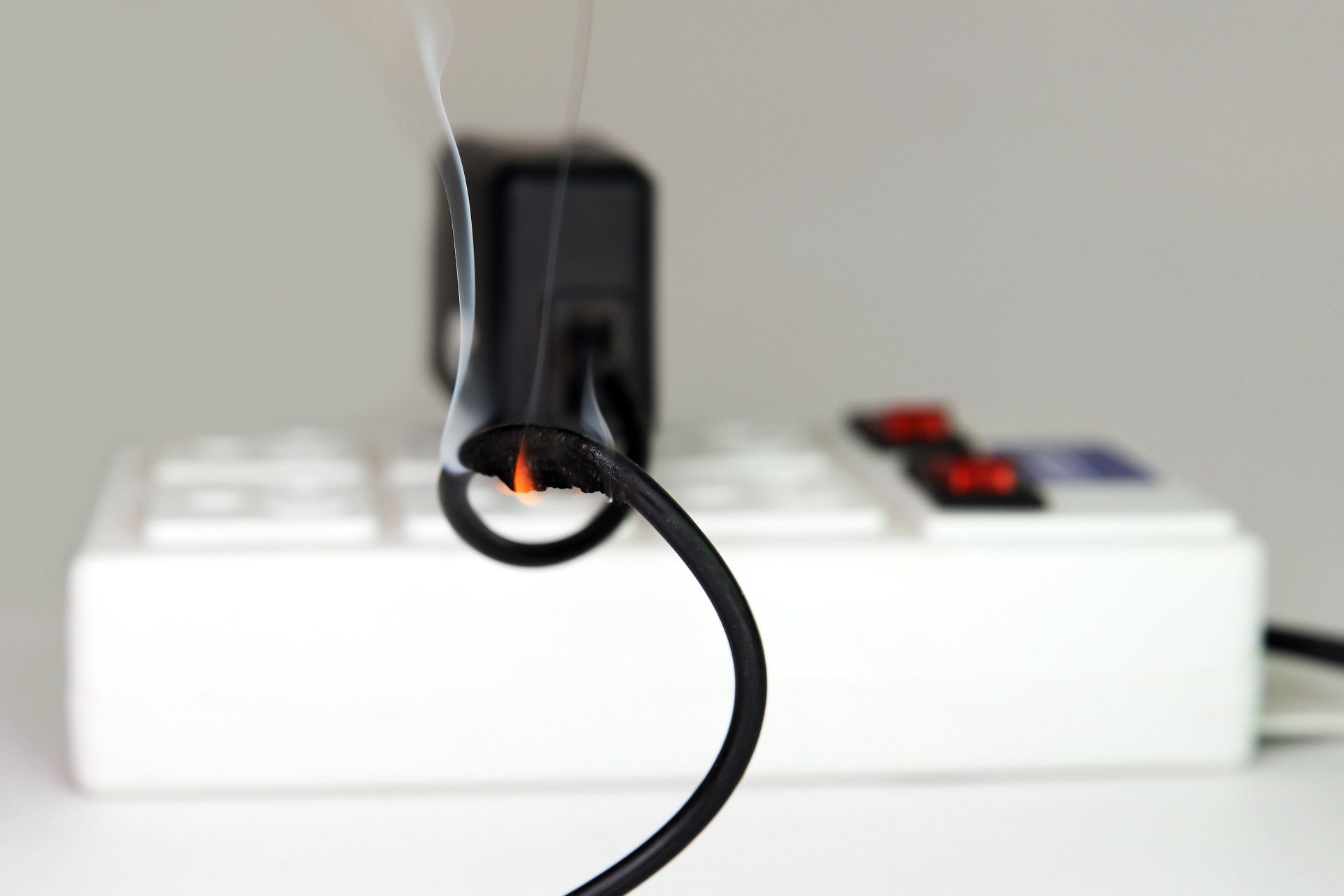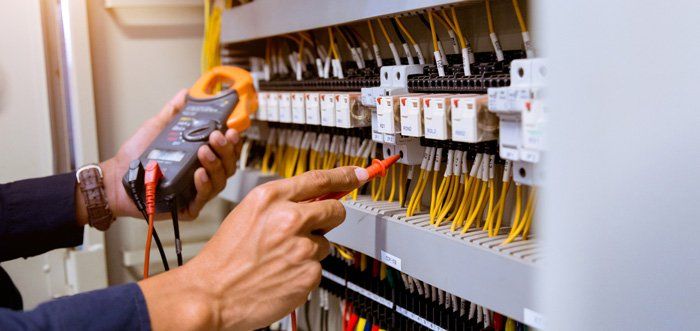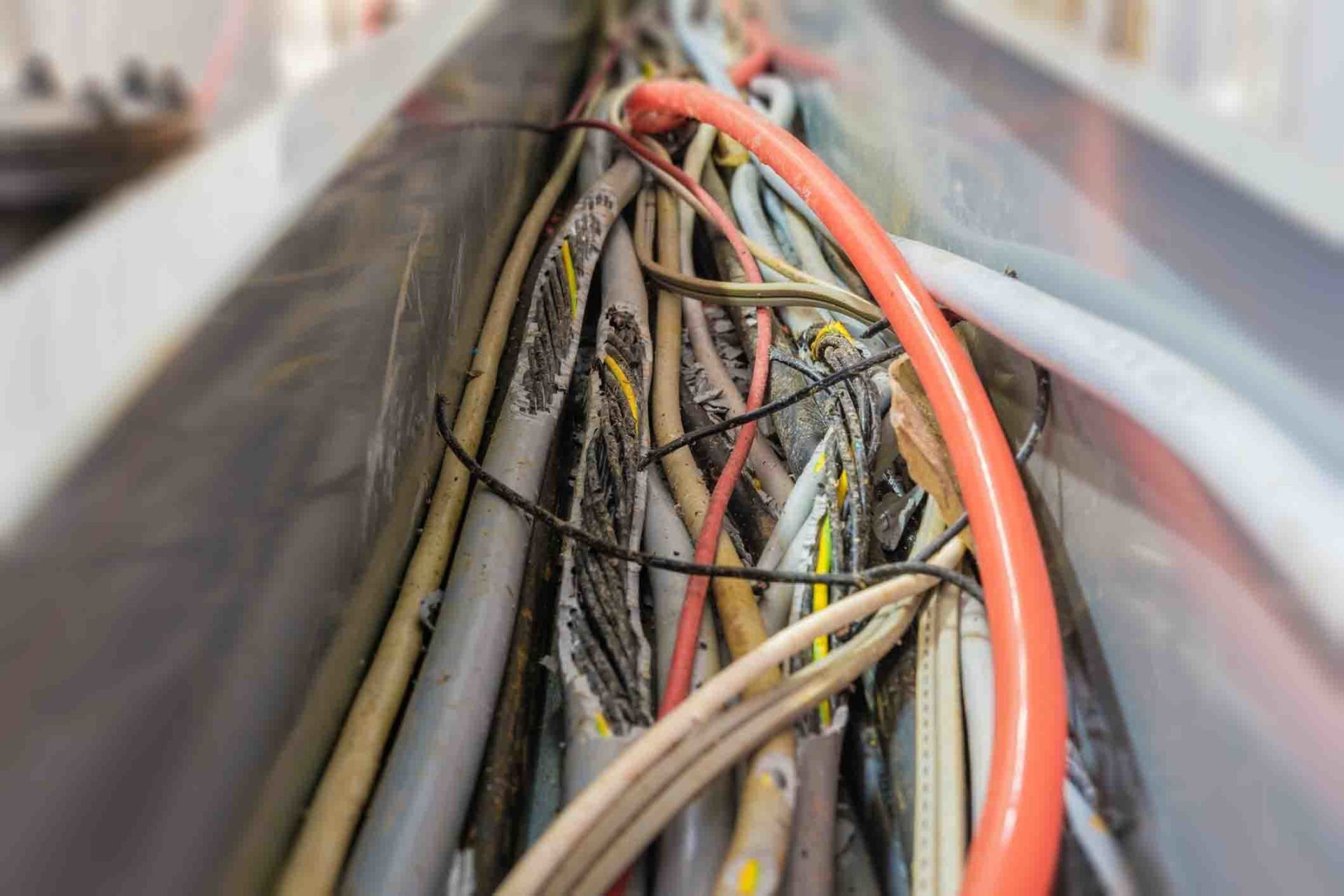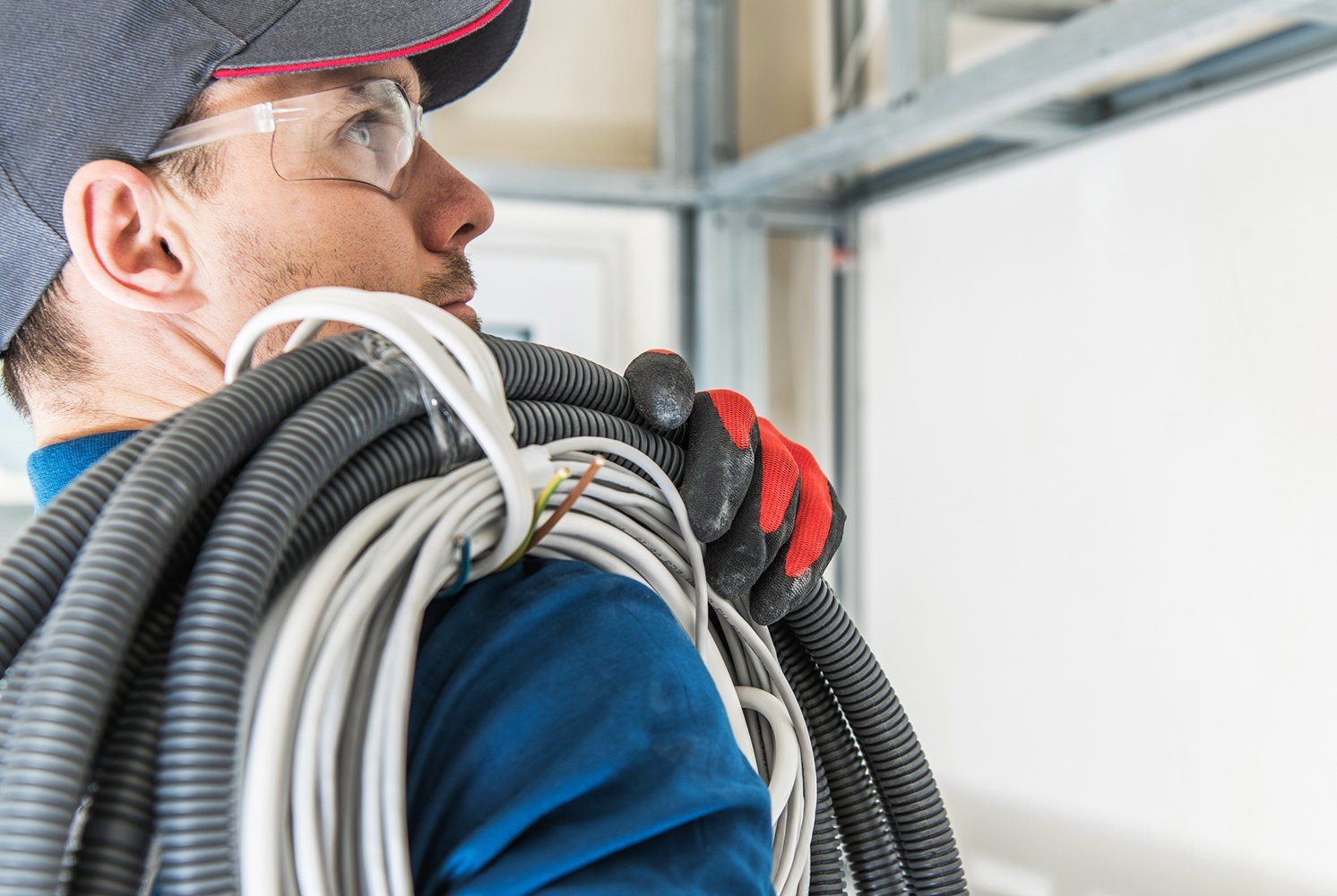Signs of an Electrical Overload and How to Solve It
Admin • December 12, 2018
An electrical overload can either affect specific electrical circuits or your whole house. However, many of the symptoms of an electrical overload apply to both forms of overload.
Signs of Electrical Overload
Your electrical system will communicate to you if you overload it. Below are some of the classic signs of an overloaded electrical system.
The Lights Flicker
An electrical overload will affect your house in various ways, but one of the first things you may notice is that the lights flicker. The lights flicker because they don't get adequate electricity since all the electrical appliances, fixtures, and electronics in your house share the available electricity supply. The flickers may intensify when you plug in more appliances; the lights may even go off.
The Breakers Can't Stay Up
Electrical breakers secure your electrical system by cutting off electricity if the circuit malfunctions. A short circuit and an electrical overload are classic examples of electrical malfunctions that trip up breakers. You should suspect an electrical overload if the breakers stay up if you unplug some of the appliances but then trip when you plug them back in.
The Outlets Overheat
An overloaded circuit may also overheat the affected electrical outlets plus their immediate environments. The outlets will overheat as they struggle to draw as much electricity as possible and their electrical resistance increases. After some time, you may notice that the affected outlets are warm to the touch, have a smoky smell, and are darker than they should be.
High-Powered Appliances Don't Work Properly
Anything that draws considerable power will be the first to be affected if the electrical demand in your house is higher than the supply. The high-powered equipment may struggle to start up or stay on. Power tools or anything with an electric motor is a good example of equipment that may malfunction in the face of an electrical overload.
You Use an Extension Cord Permanently
Even if you haven't noticed specific problems with your electrical system, you should suspect an electrical overload if you use an extension cord all the time. An extension cord is something you should only use temporarily, for example, when you need to extend power across the room. A permanent extension cord means the existing electrical outlets are inadequate.
Tips for Dealing With an Overload
An electrical system overload is a ticking time bomb that you need to diffuse as soon as possible. Here are some helpful measures to try.
Don't Use All Electrical Appliances All at Once
A temporary fix is not to use all your electrical appliances, fixtures, or equipment simultaneously. For example, don't turn on an electric heater, an electric water heater, light bulbs, the dishwasher, and washing machine all at once. Alternate your use of the equipment, particularly those that draw considerable power.
Use an Extension Cord Occasionally
An extension cord can help you distribute power consumption across different circuits and relieve the pressure on some circuits. An extension cord will help if the overload has only affected a few circuits and not the whole house. For example, use an extension cord to charge some items in the bedroom if the outlets in the living room are overloaded.
Upgrade Your Electrical System
The above two measures are only helpful in the short term. Upgrade your electrical system or supply as a permanent solution. For example, you can add more outlets in the house if only specific circuits are overloaded. However, upgrade the electrical supply and service panel if your overall electricity demand exceeds the supply.
You endanger your house if you don't fix the problem of an electrical overload. At Presley & Son Electric Service , we have the resources to fix the problem for you. If you suspect your electrical system is overloaded, give us a call today for a professional diagnosis and solution.
Signs of Electrical Overload
Your electrical system will communicate to you if you overload it. Below are some of the classic signs of an overloaded electrical system.
The Lights Flicker
An electrical overload will affect your house in various ways, but one of the first things you may notice is that the lights flicker. The lights flicker because they don't get adequate electricity since all the electrical appliances, fixtures, and electronics in your house share the available electricity supply. The flickers may intensify when you plug in more appliances; the lights may even go off.
The Breakers Can't Stay Up
Electrical breakers secure your electrical system by cutting off electricity if the circuit malfunctions. A short circuit and an electrical overload are classic examples of electrical malfunctions that trip up breakers. You should suspect an electrical overload if the breakers stay up if you unplug some of the appliances but then trip when you plug them back in.
The Outlets Overheat
An overloaded circuit may also overheat the affected electrical outlets plus their immediate environments. The outlets will overheat as they struggle to draw as much electricity as possible and their electrical resistance increases. After some time, you may notice that the affected outlets are warm to the touch, have a smoky smell, and are darker than they should be.
High-Powered Appliances Don't Work Properly
Anything that draws considerable power will be the first to be affected if the electrical demand in your house is higher than the supply. The high-powered equipment may struggle to start up or stay on. Power tools or anything with an electric motor is a good example of equipment that may malfunction in the face of an electrical overload.
You Use an Extension Cord Permanently
Even if you haven't noticed specific problems with your electrical system, you should suspect an electrical overload if you use an extension cord all the time. An extension cord is something you should only use temporarily, for example, when you need to extend power across the room. A permanent extension cord means the existing electrical outlets are inadequate.
Tips for Dealing With an Overload
An electrical system overload is a ticking time bomb that you need to diffuse as soon as possible. Here are some helpful measures to try.
Don't Use All Electrical Appliances All at Once
A temporary fix is not to use all your electrical appliances, fixtures, or equipment simultaneously. For example, don't turn on an electric heater, an electric water heater, light bulbs, the dishwasher, and washing machine all at once. Alternate your use of the equipment, particularly those that draw considerable power.
Use an Extension Cord Occasionally
An extension cord can help you distribute power consumption across different circuits and relieve the pressure on some circuits. An extension cord will help if the overload has only affected a few circuits and not the whole house. For example, use an extension cord to charge some items in the bedroom if the outlets in the living room are overloaded.
Upgrade Your Electrical System
The above two measures are only helpful in the short term. Upgrade your electrical system or supply as a permanent solution. For example, you can add more outlets in the house if only specific circuits are overloaded. However, upgrade the electrical supply and service panel if your overall electricity demand exceeds the supply.
You endanger your house if you don't fix the problem of an electrical overload. At Presley & Son Electric Service , we have the resources to fix the problem for you. If you suspect your electrical system is overloaded, give us a call today for a professional diagnosis and solution.
Some myths lead you to believe you are taking all the steps possible to minimize home electricity usage. Learn about these myths and what else you can do.
Electrical accidents can happen in the blink of an eye. Take steps to protect your child from household electrical hazards with these four tips.
If you're thinking about a summer HVAC upgrade, take the first step and contact an electrician to evaluate your home's electrical system.
